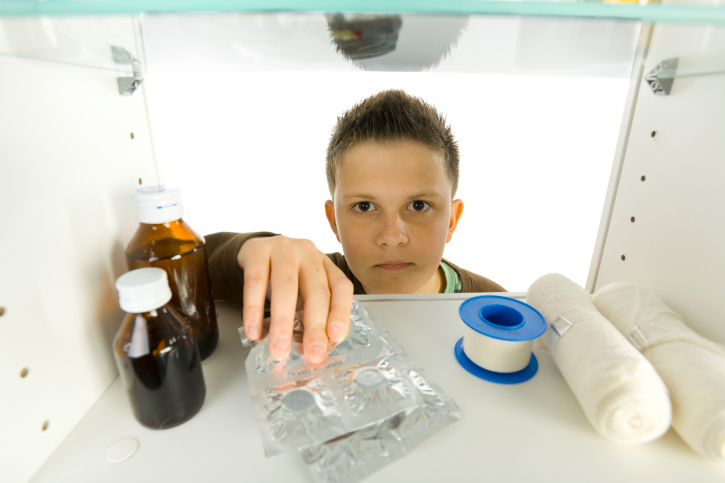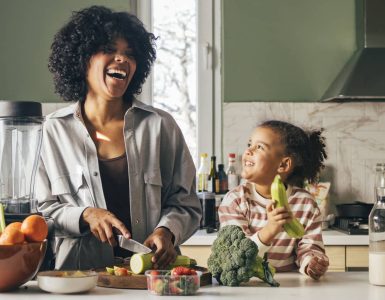This week is National Poison Prevention Week, an ideal time to make sure that you have taken the proper safety measures at home to reduce the risk of poisoning. 2 million poisoning cases are reported each year, and nearly 90% of those cases happen at home. Most non-fatal poisoning accidents happen in children under 6 years of age. The following tips, recommended by SafeKids.org and Kidshealth.org, can help you reduce the risk of children being poisoned in your home.
General Safety Tips
- Always read product labels to understand what products are poisonous.
- Do not place poisonous products in food or drink containers.
- Don’t rely on child-resistant product packaging to protect children–it doesn’t mean the packaging is entirely childproof.
- Use safety latches to secure all cabinets or drawers where poisonous materials are kept.
- Program the Poison Control Center phone number (1-800-222-1222) into your phone so that you always have it handy.
- If you suspect your child has been poisoned, take the product in question with you to the phone and call the Poison Control Center. They offer fast, free, confidential help in English and Spanish 24 hours a day, 7 days a week. Follow the operator’s instructions and do not give the child any medication or try to induce vomiting unless directed to by the operator.
- If your child has collapsed or is not breathing, call 911 instead of the Poison Control Center.
Medications
- Do not refer to medicine as “candy.”
- Avoid preparing or dispensing medication to a child in the dark, as you may give the child the wrong dosage or even the wrong medication.
- Don’t leave medicine bottles or vitamin bottles on reachable surfaces such as countertops, nightstands, kitchen tables, and more.
- You or guests in your home may store medicines in your handbags. Be sure to store all handbags out of the reach of children.
- Always keep medicines in their original containers.
- Try to keep a record of how many pills should be left in a prescription container.
- If you are giving medicine to your child, always read and follow the directions listed on the medication. If you are confused about any instructions, consult your pharmacist.
- Do not give adult medications to children.
- Don’t increase the medicine dosage of your child seems sicker–call your pediatrician for advice.
Cleaning and Household Chemicals
- When you are cleaning or using household chemicals, don’t leave them unattended.
- Never put roach powder or rat poison on the floor of your home.
- Do not mix cleaning products.
Pesticides
- Avoid using synthetic pesticides on your lawn or garden. Even if you purchase natural or organic products, read the product packaging carefully and follow all recommended safety instructions.
- Do not leave open pesticide bottles around children.
- Before spraying pesticide, be sure to move all toys, picnic tables, swing sets, and other objects that children play with and frequent out of the way.
Alcohol
- Products that seem innocuous, like mouthwash or vanilla extract, may contain alcohol. Keep such items in locked and/or out-of-reach cabinets.
- Do not leave alcoholic drinks or bottles of alcohol where kids can reach them.
Lead
- If you have an older home, you may want to have it tested for lead. The National Lead Information Center can give you more information on lead–just call 800-424-LEAD (5323).
- Ensure that your child can’t access or chew on any surfaces that have peeling paint–especially surfaces that may have been painted with lead paint.
- Eliminate sources of lead in items like cookware, costume jewelry and toys by keeping abreast of consumer product recalls, which you can read about at CPSC.gov.
Other Poisonous Materials
- Avoid keeping poisonous plants within a child’s reach in the house or the garden. Some examples of popular plants that are poisonous to humans include rhododendrons, lily of the valley, English ivy, holly, and mistletoe.
- Safely store or properly discard of button cell batteries–their alkaline substances are poisonous to humans.
- Store hazardous cosmetic products such as hairspray, nail polish, nail polish remover, hair dye, and shoe polish safely out of reach.
If you have more questions about how to reduce the risk of poisoning in your home, make sure to talk to your family doctor or your child’s pediatrician.



